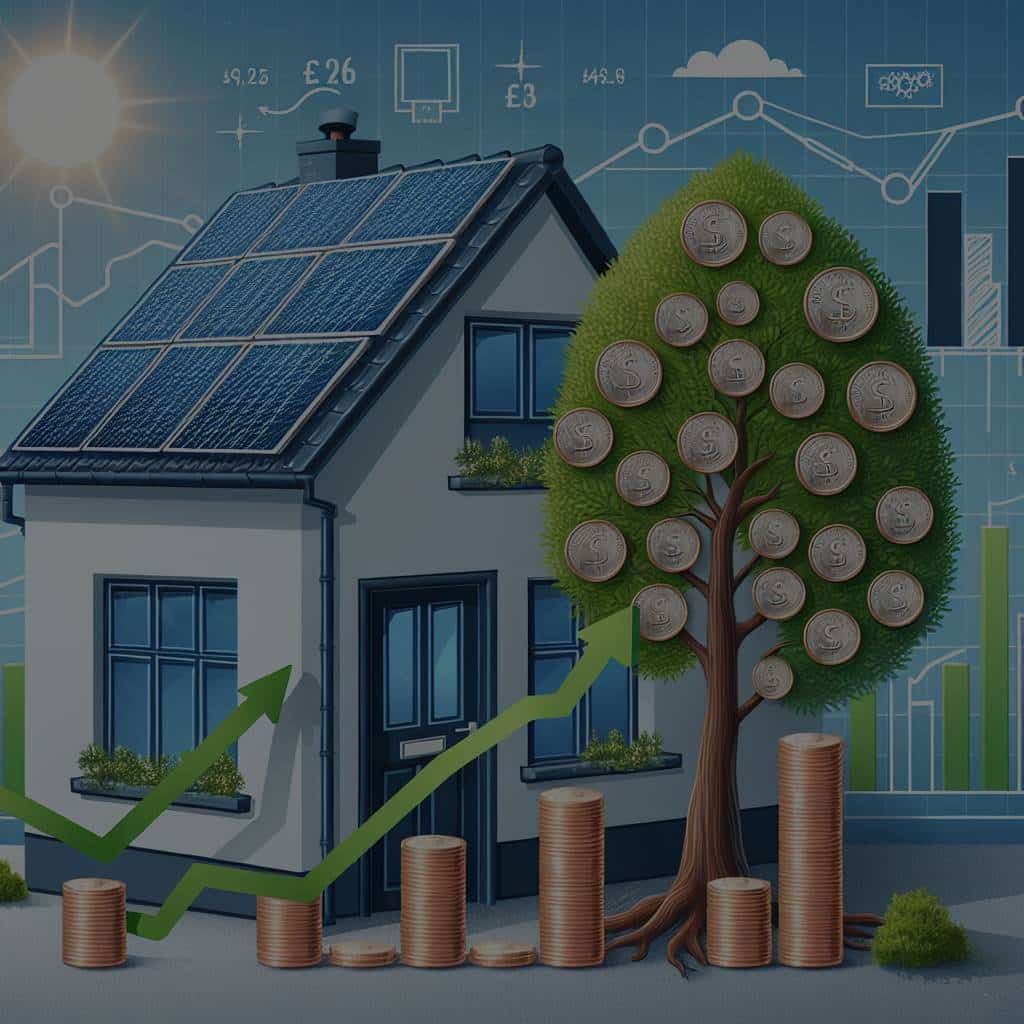What Are the Long-Term Economic Benefits of Investing in Energy-Efficient Residential Buildings?

Amid an ever-growing interest in sustainability, the concept of energy efficiency in buildings has come to the fore. Energy-efficient buildings are constructed or upgraded to minimize energy consumption while providing the same or improved level of service to the users. These buildings are characterized by a low carbon footprint, reduced energy loss, and increased use of renewable power sources. But the question arises – what are the long-term economic benefits of investing in energy-efficient residential buildings?
The answer is manifold, ranging from cost savings and job creation to increased property value and a healthier climate. Let’s delve into the specifics of these benefits.
Topic to read : What Are the Most Effective Strategies for Marketing Luxury Properties in a Digital Age?
Cost Savings through Energy Efficiency
When it comes to the economic benefits of energy-efficient buildings, the first point that often comes up is cost savings. These savings are achieved through two main channels – energy savings, and operation and maintenance cost reduction.
A significant portion of energy used in houses is wasted due to inefficient insulation, old equipment, and outdated practices. Energy-efficient construction and renovations address these inefficiencies, leading to a drop in energy use. This reduction translates into lower energy bills for the homeowners, resulting in substantial cost savings over time.
Also to read : How to Develop Real Estate Projects with a Focus on Sustainable Public Transportation Access?
Moreover, energy-efficient houses have fewer breakdowns and require less maintenance, further reducing costs. The savings from these reduced operation and maintenance costs can be substantial, especially over the long term.
Job Creation in the Energy Efficiency Sector
One might not immediately link energy efficiency with job creation, but the connection is closer than you may think. The construction and maintenance of energy-efficient buildings require skills and experience that often aren’t needed in traditional construction. This new demand creates jobs in multiple industries, from architects and engineers to technicians and installers.
Furthermore, these jobs are local and can’t be outsourced, thus providing a boost to local economies. For instance, in Europe, research suggests that for every million Euro invested in energy efficiency, approximately 17 jobs are created. This is a significant impact on the economy, especially in a climate where job creation is paramount.
Increased Property Value
Another considerable economic benefit of energy-efficient buildings is the increase in property value. Energy-efficient homes tend to have higher resale values than their less efficient counterparts. This is because potential buyers understand the value of reduced energy and maintenance costs.
In addition, the sustainable features of these homes often make them more comfortable and appealing to live in. For example, better insulation and efficient heating systems can make these homes warmer in winter and cooler in summer.
Benefiting the Broader Economy and Climate
Beyond the direct economic benefits, investing in energy-efficient buildings can have a positive impact on the broader economy and climate. Energy-efficient buildings can reduce our reliance on fossil fuels, contribute to reducing emissions, and play a role in tackling climate change.
In addition, energy-efficient buildings can help countries reduce their energy import dependence, providing a boost to national security. This is particularly relevant for many countries in Europe, which are heavily reliant on energy imports.
Moreover, the construction of energy-efficient buildings can stimulate demand for new technologies and innovation, leading to business growth and further job creation.
Promoting Affordable and Sustainable Housing
Lastly, energy-efficient buildings can contribute to making housing more affordable and sustainable. Affordable housing is a crucial issue in many parts of the world, and energy-efficient construction can play a role in addressing this challenge.
Energy efficiency can reduce housing costs by lowering energy bills, making homes more affordable in the long run. Moreover, energy-efficient homes are more resistant to fluctuations in energy prices, providing financial stability to homeowners.
On the sustainability side, energy-efficient buildings use fewer resources and produce less waste, contributing to a more sustainable built environment. This is in line with global efforts to promote sustainable development and combat climate change.
In conclusion, the long-term economic benefits of investing in energy-efficient residential buildings are substantial. They range from cost savings and job creation to increased property value, a healthier climate, and more sustainable housing. These benefits make a compelling case for investing in energy-efficient construction and renovation.
Inflation Reduction through Energy Efficient Buildings
In today’s challenging economic climate, people are constantly looking for ways to mitigate the impact of inflation. Investing in energy-efficient buildings presents an effective solution to this problem. With the rising costs of energy, houses that consume less can provide a buffer against inflation.
Energy-efficient buildings, by their nature, consume less electricity, gas, and other forms of energy. This reduced energy consumption not only lowers the energy bills but also insulates homeowners from the price fluctuations in the energy markets. With the world shifting towards renewable energy sources, those who invest in energy-efficient homes could see reduced energy costs in the long term.
Moreover, the use of energy-efficient appliances and systems in these buildings can lead to fewer replacements and repairs, reducing the cost of living even further. These savings, when compounded over the lifetime of the building, can be significant.
Additionally, energy-efficient buildings contribute to mitigating climate change by reducing greenhouse gas emissions. This is particularly important given the increased frequency and intensity of extreme weather events caused by climate change, which often result in higher insurance premiums and property damage costs. Thus, energy-efficient buildings can also contribute to cost savings in this regard.
Key Takeaways and Future Prospects
The long-term economic benefits of investing in energy-efficient residential buildings are clear. They offer substantial cost savings by reducing energy use and operation and maintenance costs. They also contribute to job creation, increase property value, and provide a buffer against inflation.
Energy-efficient buildings are a key component in the transition to a sustainable, low-carbon economy. They contribute to reducing greenhouse gas emissions, thus playing a crucial role in mitigating climate change. They also promote the use of clean energy sources, thereby reducing dependence on fossil fuels and enhancing energy security.
Investing in energy efficiency in the residential sector can also contribute to addressing the affordable housing crisis in many parts of the world. By reducing energy costs, energy-efficient buildings can make housing more affordable in the long run.
As we look to the future, the case for investing in energy-efficient buildings is set to become even stronger. With the ongoing advances in green building technologies and the growing awareness about climate change, the demand for energy-efficient homes is expected to rise significantly.
The benefits of energy efficiency go beyond the individual homeowner. They extend to the broader economy and society, making it a strategic investment for the future. In the United States and around the world, there is a clear need for further investment in energy-efficient residential buildings.
In conclusion, the economic benefits of investing in energy-efficient buildings are multifaceted and long-lasting. From cost savings and inflation protection to job creation and climate change mitigation, energy-efficient buildings offer a viable and sustainable way forward. Therefore, it is of utmost importance to continue investing in energy efficiency and promote its benefits to homeowners and the larger community.
